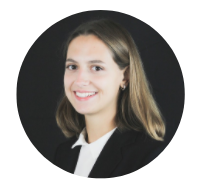The new HEC circular economy Academy: from theory to practice!
In the last few years, rising awareness of the issues of resource scarcity and climate change has demonstrated the need to move from a linear economy to a circular and resilient one. To understand this approach and the potential levers of action to profoundly change the ethos of businesses and how they operate, 28 students have enrolled on this brand new program 100% focused on the circular economy.

A new shift of mindset
At the heart of the topical debates of the last few years lies this need to move from a linear economy (extract - manufacture - consume - throw away) to a more circular and resilient one (sober and responsible consumption of natural resources and virgin raw materials, extending product lifespans, relocating industrial activity...).However, the circular economy is still suffering from a lack of clarity and visibility. It is often understood as just the principle of taking the materials’ end-of-life and their recycling into consideration. However, the vision is slowly gaining ground of the circular economy as change to the global paradigm with the goal of profoundly reducing resource extraction and transforming how we produce and consume.
With this in mind, Laurène de Saint Chaffray & Nora Youcefi, co-founders of AZIMIO and both HEC alumni, created this new academy with the HEC teaching team and the support of the Inclusive Economy center at HEC’s Society & Organizations Institute.
“A sufficiently ambitious and well-thought-out approach to the circular economy constitutes a strong lever for resilience and sustainability in the context of the climate crisis, biodiversity collapse, and resource scarcity that we are going through,” they underlined.
 |
Anna Maiorova, M1 Student |
Field projects with a direct impact on the HEC campus
During these three weeks of teaching, mixing theory, immersion, role-play and discussions with actors involved in these fields, the students were able to understand the richness of the notion of circular economy, its issues and implications at different scales (States, regions, businesses, individuals). They could also take a critical view of understanding the main limitations to the circular economy as it is applied today and considered various ways of improving this. They also got to know the various different analytical tools used to put the circular economy approach into effect (life-cycle analysis, measuring material flows).
Finally, the students took an active part in the specific circular economy projects already in place, or yet to be developed, on the HEC campus.This enabled them to take some responsibility and gave them the means to make a sustainable impact on their own campus. “We worked on issues such as reducing the environmental impact of “goodies” at HEC, expanding the range of the bulk goods at the HEC grocery shop, communicating and raising awareness about waste sorting in the collective catering facilities and halls of residence, as well as plenty of other things... The final results were presented directly to those responsible for these matters in the administration,” Anna said enthusiastically.
 |
Florent Lalin trained as an industrial engineer and joined this academy because he was seeking a more in-depth vision of climate issues.
Florent found out about this program through HEC’s H. Académie which provides opportunities for disabled students and young graduates to access these academic seminars. |

|
Claire Le Bescond, an external participant |
We would particularly like to thank the following businesses that took part in the academy, certain HEC partners, all committed to the ecological transition: Veolia, L'Oréal, Orange, Incluseo, Le Bon Coin, Emmaüs and Emmaüs Défi, Les Hameaux Légers, Edeni, les Grains de Sel, le Bocal, le Pavé, Lemon Tri, Murphy, Kataba, Gobi, la Coopérative Mu, La Cour Cyclette and Take a Waste.
To find out more, please contact Elisabeth Dereals, head of the S&O educational mission - dereals@hec.fr
To find out more about HEC academies
S&O Climate and Environment Center HEC Paris